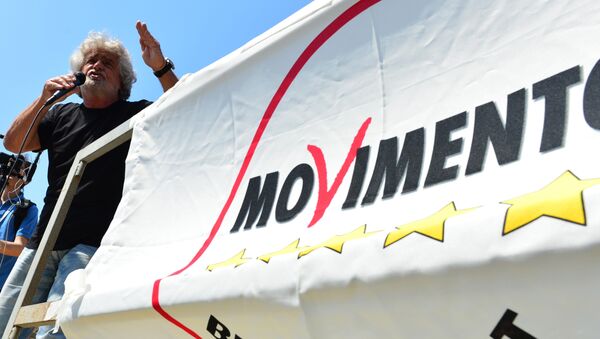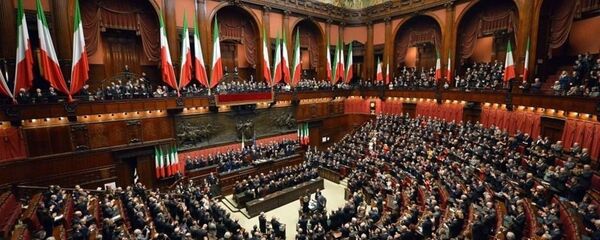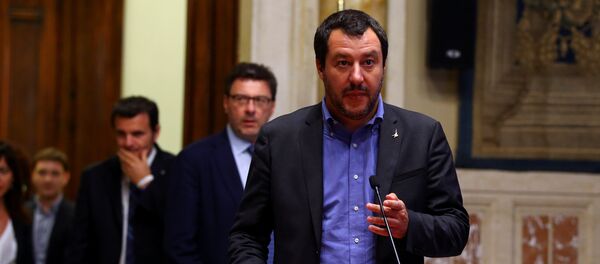Sputnik discussed this with Daniela Giannetti, a professor from the Department of Political and Social Sciences of the University of Bologna.
Sputnik: It's a difficult situation in Italy, isn't it? The country is in a very long, protracted crisis; what are the main disagreements over the formation of the government in Italy?
READ MORE: Italy: Betraying the People
So the question about the main disagreements about government formation has to do with the fact that the two parties are very distant, for example, they have very different internal social policies but they are close on the second important issue (conflict) that was significant during the electoral campaign which is the relation with the euro, so this has become very apparent after the election and during these long negotiations. The issue is to stay or not to stay in Europe, so I think they spent weeks trying to find out elements of agreement in their different political platforms and what they have produced, something that they call a 'contract' something like a government platform. In the end basically they announced how they can reconcile their differences. For example, the Five Star Movement says ok to the basic income, and the Northern League says ok to the flatter tax. These two economic measures are incompatible in terms of their cost, so I think this explains why in the end they are not really willing to govern Italy, in my opinion.
Sputnik: I was speaking to several experts on Radio Sputnik also about the situation in Italy and also about the populist coalitions of these populist parties and they were saying that they are very new in politics and they don't really play by the traditional rules of politics…
READ MORE: Journalist on Newly-Formed Italian Govt: 'the Two Parties Will Take Issue'
We still are in a parliamentary Republic, so these people in my opinion they seem not to know what are the rules, democracy is not just this so-called will of the people, democracy is also about cheques and balances, so in Italy the head of state plays an important role, and he has played this role also in the past but at the moment, in my opinion, he's trying to save the situation that's very problematic and very dangerous for some reason.
For more information listen to this edition of Weekend Special with Daniela Giannetti.
Views and opinions expressed in this article are those of the contributor and do not necessarily reflect those of Sputnik.





